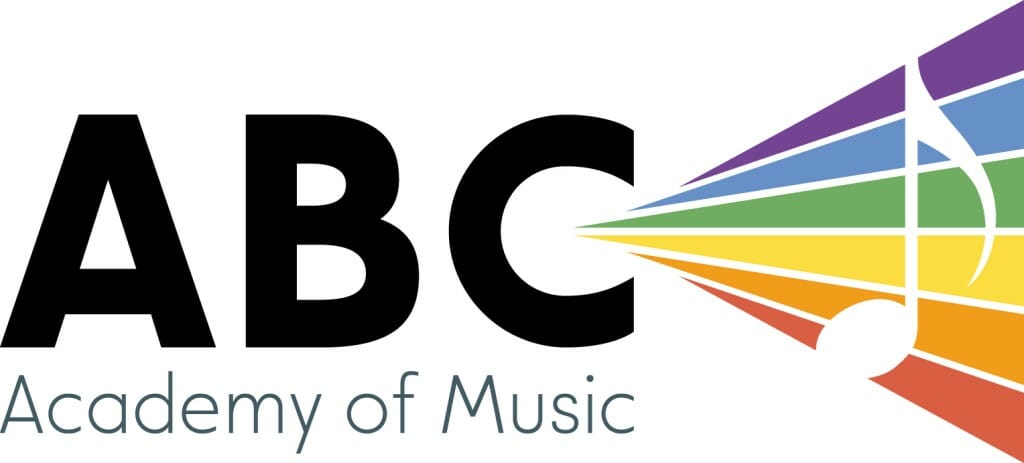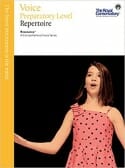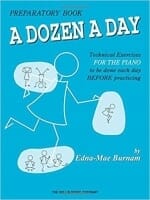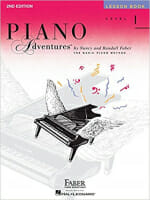Shelley has recently graduated with a Master of Teaching from OISE. She is qualified to teach music and drama. Shelley did her undergrad at the UofT Faculty of Music where her main instrument was piano. She sang in the Women’s Chamber Choir, where she got the opportunity to perform Cherubini’s Requiem at the Lincoln Center. Shelley also studied multiple genres of voice, especially classical, musical theatre, and jazz. She has performed in multiple revue/cabaret shows and was a soloist in the Hart House Jazz Ensemble. Shelley has also taken courses in the UofT Drama department and directed two of her original plays on campus.
As an emerging music educator, Shelley would like to expose her students to a wide variety of different musical genres/styles including classical, jazz, pop, musical theatre, folk, and contemporary, and teach them techniques such as reading notation, reading degree numbers, and learning by ear. She aspires to create a space that students enjoy because they get to explore their own musical identity and interests by choosing the music style(s) they like. By encouraging and giving students opportunities to engage in and develop their own skills in an area of their choice, Shelley believes students will be more likely to want to continue with music in their lives beyond the studio.
Get to know Shelley…Beyond the Bio!
Hobbies: Singing, playing piano, guitar and ukelele, acting, dancing, songwriting, story writing, playwriting, screenwriting, choreographing, travelling
Musical influences: Chopin, Sondheim, Larson, ABBA
Favourite food: Pasta
Least favourite food: Salad dressing
Favourite song: What Doesn’t Kill You Makes You Stronger by Kelly Clarkson
Favourite movie: The Sound of Music
Favourite movie music: The Lion King
Favourite musical theater/ opera: Wicked, Don Giovanni
Best quote from your teacher: “It’s not just about practicing, it’s the way you practice”
Favorite quote: “Don’t work hard, work smart”
Favourite book: Between the Lines by Jodi Picoult and Samantha Van Leer
Best thing about teaching at ABC: Passing my love of music to students
Latest Homework from Shelley
Is Shelley Your Teacher?
Sign up now to get your weekly assignments delivered, and never lose your homework sheet again!
Homework for April 1-8
Henry
Great job today Henry! Here is this week’s homework:
How long to practice: 5-10 min per day
What to practice: Baseball Days, The Postman
How to practice:
Baseball Days- Good work! Remember to let go of the E before the left hand comes in on line 1. Legato (connected), but not overlapping the next notes.
The Postman- Audiate (meaning sing/count in your head) the counting of 3 while you play, only hold dotted half notes for the same value as 3 quarter notes.
How parents can support practice:
Listen and guide him. Playing together helps too.
See you next week :)
Homework for June 11-18
Henry
Amazing work today Henry! Here is this week’s homework:
How long to practice: 5-10 min per day
What to practice: Only Love Can Break Your Heart, Rain on the Roof
How to practice:
Only Love- Great work!! I can tell you practiced a lot :)))
Find places in the song where you want to play louder and other places where you want to play quieter.
Review when the chorus ends on D-B and when it ends on E-D (chorus is E-D, intro and outro are D-B)
Review outro (same as intro except starting with two Gs instead on B-C)
-Tip: finger 4 is always on G in right and left hand, so the two Gs have the fingering 4-4
KEEP FINGERS ON THEIR CORRESPONDING KEYS!!! DO NOT MOVE!!
Rain- Review
How parents can support practice: Keep guiding him! Whatever you’re doing is great :)
See you next week :)
Henry
Awesome job today Henry! Here is this week’s homework:
Duration of practice: 5-10 min per day
What to practice: Rain on The Roof, Only Love Can Break Your Heart
How to practice:
Rain on The Roof
-Use a metronome to help keep a steady beat. Know when to play shorter notes and when to play longer notes- and how long/short they should be.
-Keep fingers on their respective keys! Each note name is played by the same finger, so no need to move fingers. For this piece, both thumbs are in middle C.
-Pay attention to when there are steps, when there are skips, and which direction the notes are going (up or down).
Only Love Can Break Your Heart
-Amazing progress!! Keep practicing :))
How parents can support practice:
-Keep guiding him
-If he is struggling with a section, remind him to isolate that section and work on it until he is able to play it correctly at least three times before connecting it with the rest of the piece
-Remind him to use the metronome
See you next week :)
Homework for May 28-June 4
Henry
Happy Birthday Henry!!! Here is this week’s homework:
How long to practice: 5-10 min per day
What to practice: Only Love Can Break Your Heart, Rain on The Roof
How to practice:
Only Love- Follow music chart rather than trying to memorize, review swing rhythm (it’s getting better!)
Rain- Review
How parents can support practice: Listen and guide him, play a recording of Only Love so he can hear and lock in the rhythms
See you next week :)
Homework for May 22-28
Henry
Great job today Henry! Here is this week’s homework:
What to practice: Only Love can Break Your Heart, Rain on The Roof
How to practice:
Only Love- Practice the swing rhythm, think of it as a seesaw with one side having a heavier person which makes one note longer than the other. Practice each section of the song separately, then put them together.
Rain- review
How parents can support practice: Listen and guide his playing. Specifically with Only Love, sing it with him and encourage him to try singing it to get the correct rhythms.
See you next week :)
Homework for May 14-21
Henry
Great work today Henry! Here is your homework:
How long to practice: 5-10 minutes per day
What to practice: Rain on the Roof, Only Love Can Break Your Heart
How to practice:
Rain on the Roof- practice with a metronome to get rhythm precise, repeat a passage at least three times to learn it correctly
Only Love- Review
How parents can support practice- Guide him so he learns passages correctly, help with metronome
See you next time :)
Homework for May 10-14
Henry
Great job Henry! Here is your homework for Wednesday:
Duration: 5-10 min a day
What to practice:
Only Live Can Break Your Heart
Rain on the Roof
Theory from last lesson
How to practice:
Only Love- Remember that each key has a finger and it should stay on its key the whole time. If you read the sheet and you have a note coming up, as long as the correct fingers are on the keys, you will get the note with its correct fingering.
Rain- continue from last week
Theory- finish if not completed yet
How parents can support practice- Supervise and guide him with practicing, and remind him to keep his fingers in the correct positioning.
See you Wednesday :)
Preferred Books for Shelley Students
Click to buy them here, and they’ll come right to your house! What could be easier?
RCM Voice Repertoire
A Comprehensive Voice Series serves as the official resource for voice assessments of the Royal Conservatory Music Development Program. Featuring an outstanding selection of voice literature and supporting materials, this series offers a truly enriched learning experience to help ensure student success. As in previous editions, Resonance encompasses a rich and varied selection of Repertoire, Vocalises and Recitatives that students of all ages and voice types will find appropriate to their musical interests and level of technical ability.
Hal Leonard Vocal Method

The Complete Method for Singers

Kodály Approach

Belting - A Guide to Healthy Powerful Singing
Belting is a strong way of big singing that has become very popular in contemporary styles. It is heard in everything from rock to hip-hop to pop to musical theater to the plethora of award shows. However, not only is there much confusion and misinformation about how to belt well, if done poorly belting can actually damage the voice. Numerous famous singers have belted their way to injury or even lost their voices, sometimes permanently. Many voice teachers believe (incorrectly) that belting is simply bad, physically and aesthetically. So, singing students are getting mixed messages. They hear their favorite artists belt-singing throughout their favorite music, yet the resources teaching healthy belting techniques are few and far between. Belting for the Contemporary Singer seeks to remedy the situation. The fact is, belting can be done well and without causing injury. This book presents the facts about belting, what approaches work and which to avoid. Its online video and audio demonstrate good techniques and exercises.
15 First Lessons - Voice
The First 15 Lessons series provides a step-by-step lesson plan for the absolute beginner, complete with audio tracks, video lessons, and real songs! Designed for self-teaching or for use with an instructor, you’ll build a solid foundation as you work through each lesson, learning the basics of singing and music reading while practicing the many exercises, concepts and song excerpts within. Each book in the series features must-know instruction so you can start performing right away, with a free online metronome! The voice book features lessons on: full-body singing, breathing, finding your voice, vocal warmups, the vocal break, caring for your voice, diction, music literacy, building skills, working on a song, dealing with nerves and more.
Teach Yourself to Sing
Learn to sing and open up a brand new world of musical knowledge with this exciting method from Alfred Music. Beginning with the fundamentals, you will learn about equipment used by singers, vocal health, and getting acquainted with reading music. You will then move right along to breathing, vocalizing, proper warm-ups, and singing songs, lesson by lesson, all while continuing to increase your knowledge of reading and understanding music. You will learn to sing an array of musical styles including pop, jazz, classical, and musical theater. Near the end of the book, you will be introduced to the idea of individual interpretation, which will help you color your songs with your own unique style.
Folk Songs for Solo Singers vol. 2
A new high edition of our popular vocal collection, this volume of best-loved folk songs for solo voice and piano contains fourteen memorable works arranged by three of Alfred Music’s top writers: Jay Althouse, Mark Hayes, and Ruth Elaine Schram. The CD includes a piano accompaniment track for each song.
Elementary Rudiments of Music
This series organizes concepts into three progressive levels with an Answer Book. Designed for intermediate to late-intermediate level students, it teaches the basic elements of music theory and complements the study of all instruments.
The Brown Scale Book
This essential resource includes all major and minor scales, triads, arpeggios, dominant sevenths, and chromatic scales organized by key. A favorite for decades, The Brown Scale Book belongs in every student’s library.
Dozen A Day
Faber Piano Adventures
The 2nd Edition Level 1 Lesson Book introduces all the notes of the grand staff, elementary chord playing, and the concept of tonic and dominant notes. Students play in varied positions, reinforcing reading skills and recognizing intervals through the 5th. Musicianship is built with the introduction of legato and staccato touches. This level continues the interval orientation to reading across the full range of the Grand Staff. The 5-finger approach is presented here in a fresh, musically appealing way.















